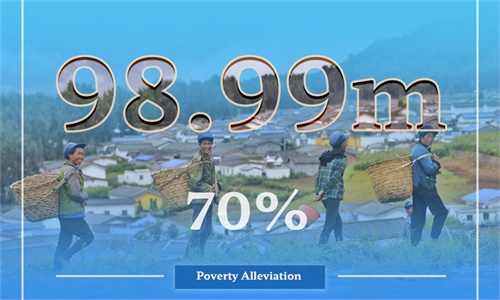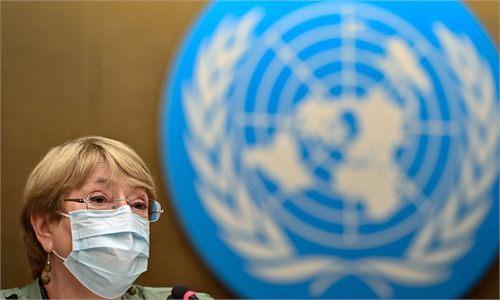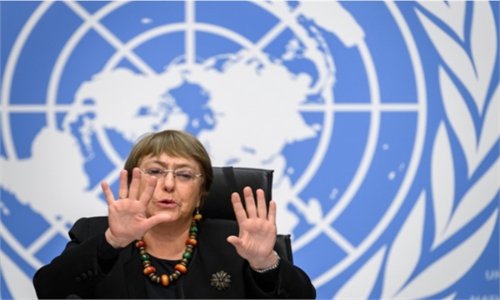70 countries at UN oppose interference in China's internal affairs under pretext of human rights

Photo taken on Sept. 14, 2020 shows the outside view of the United Nations headquarters in New York, the United States.(Photo: Xinhua)
A group of nearly 70 countries at the UN oppose double standards, politicizing human rights issues and interference in China's internal affairs under the pretext of human rights.
Addressing the 50th session of the United Nations Human Rights Council in Geneva, Switzerland, Cuban representative said in a joint statement that they called for the respect of national sovereignty, independence and territorial integrity and non-interference in internal affairs of others.
The joint statement reads thataffairs of Xinjiang, Hong Kong and Xizang are China's internal affairs. They oppose politicizing human rights issues and double standards, interferingin China's internal affairs under the pretext of human rights.
All parties should abide by the purposes and principles of the UN Charter, observe the principles of universality, impartiality, objectivity and non-selectivity, respect the right of people of all countries to independently choose their development paths according to their national conditions, the joint statement said.
All human rights issues, especially economic, social and cultural rights and the right to development, should be treated equally, it reads.
China's permanent representative to the UN Office in Geneva Chen Xu said on Tuesday that in recent years, "the Human Rights Council has become increasingly politicized and confrontational, and disinformation has become rampant, which seriously runs counter to the original purpose of the Human Rights Council."
Multilateral human rights mechanisms should serve as a platform for cooperation and dialogue, rather than a venue for division and confrontation, Chen said.
The visit of UN human rights chief Michelle Bachelet to China in May helped the Office of the High Commissioner to know more about the true human rights situation in China and the Xinjiang region.
Bachelet herself had to bear great pressure from the US and anti-China forces during her visit in the Xinjiang region. These forces opposed her visit and criticized her for not agreeing with the "genocide" allegation, what can be called "political bullying."
Chen said that all parties should promote multilateralism in the field of human rights, uphold the principles of universality, impartiality, objectivity, non-selectivity and non-politicization, and jointly promote the sound development of the international human rights cause.
Solidarity needs to be strengthened, while constructive dialogue and cooperation be carried out on the basis of equality and mutual respect. "We should make efforts to expand common understanding, reduce differences, promote mutual learning and seek progress together," Chen said.
Global Times



